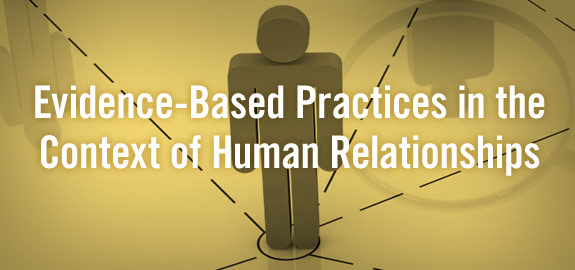John Records is the executive director of the Committee on the Shelterless (COTS) in Petaluma, California. Many of the people who come to COTS from the streets have high “adverse childhood experiences” (ACE) scores. The program uses the Restorative Integral Support (RIS) model to address their trauma.

John Records, J.D., is the executive director of the Committee on the Shelterless (COTS) in Petaluma, California. One of the challenges he sees is what he calls an endemic lack of social affiliation. He references Robert D. Putnam’s book, Bowling Alone: The Collapse and Revival of American Community. This book addressed the effect of this issue on the general population, “We often live in apartments and suburban areas, lacking familial or tribal support that was more available at other times. We lack a sense of meaningful participation in a group, a sense of belonging.”
For Mr. Records, this sense of belonging in the world is foundational. When he was only 8 years old, his mother took her own life. “My world crumbled at that point,” he says. Without the buffer of his mother, he became more aware of his father’s alcoholism. Throughout his childhood and adolescence, his father also experienced mental illness. Growing up in a home defined by chemical dependency and mental illness profoundly affected him.
When he started working with individuals experiencing homelessness, he found it natural to be with people facing these challenges. He identified with them, and they provided him with a sense of connection. “My upbringing gave me the capacity to be with other wounded people and feel comfortable with that,” he says. Prior to his work in the field of homeless services, Mr. Records worked as a lawyer. He read about Mother Theresa and Gandhi, whose stories inspired him to social engagement. He spent time working with people living with HIV and AIDS. In 1990, he began to volunteer at COTS. He became the executive director in 1992.
Approximately 350 COTS beds are available for emergency shelter, shared housing, and permanent supportive housing. Nearly 80 percent of the transitional residents will eventually move to independent housing. The COTS “Rent Right” program helps people to find and keep housing. It works with landlords and property managers, with COTS included on the lease and backing up the security deposit of some Rent Right graduates. In the event of a problem, Rent Right will help to resolve it. In 6 years, the program never had to cover the costs of a tenant failing to pay rent or damaging a property.
In addition to housing, COTS provides street outreach; a community soup kitchen; homelessness prevention programs; an on-site medical clinic; a wellness center; job programs; and women’s and men’s groups. Facilitators of many groups are trained professional volunteers. One is a clinical psychologist who provides Integrative Restoration—a practice used in military hospitals—to help resolve post-traumatic stress disorder.
Many of the people who come to COTS from the streets have high “adverse childhood experiences” (ACE) scores. The program uses the Restorative Integral Support (RIS) model to address their trauma. Mr. Records sees this model as comprehensive and flexible; it offers a meta-perspective that allows combinations of various evidence-based practices (EBPs). He says, “We have a combination of the mind, body, and spirit. I believe it is important to pay attention to what the research says. Remember, EBPs occur in the context of a relationship between two or more human beings. This relationship is fundamental to the healing.”
